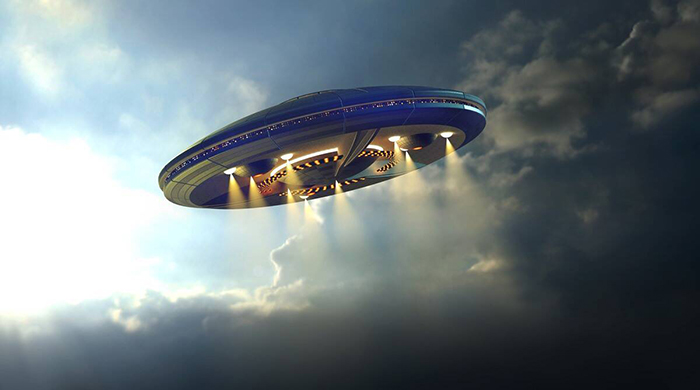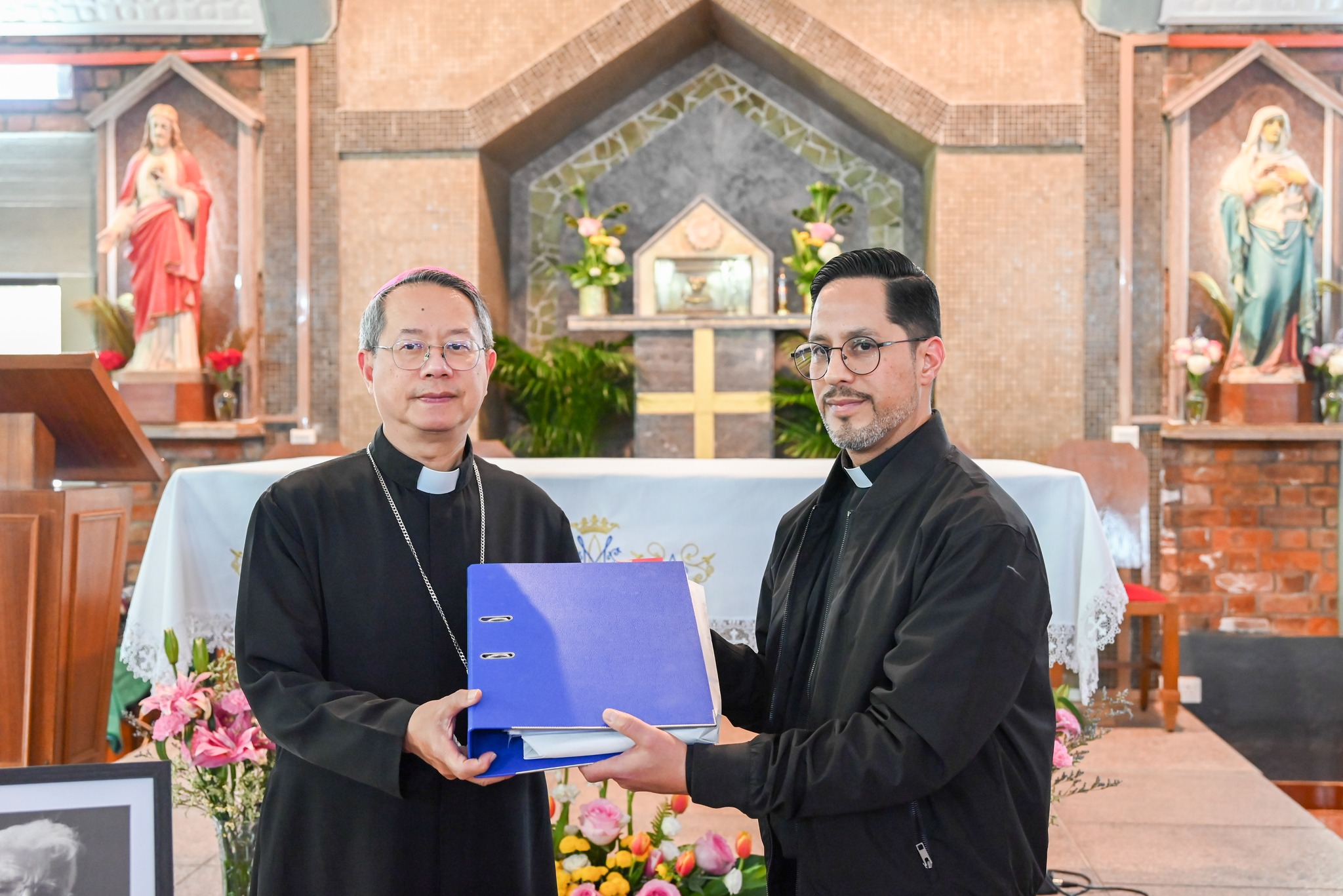Aurelio Porfiri
I do not know if you have in mind those beautiful verses of Psalm 8: “If I look at your sky, the work of your fingers, at the moon and the stars that you have set in place, what is man that you are mindful of him and the son of man that you care for him?” Now, we certainly have a much deeper vision of heaven than the psalmist, technology has allowed us incredible explorations, even if, reflecting on the vastness of the universe, we must recognize that we know too little about it. That’s why we are struck by the news that we hear these days, about UFOs, that is Unidentified Flying Objects.
As you are aware, the American authorities have confirmed the authenticity of a video that was shot in 2019, and of which they cannot give a certain explanation of the flying object identified in those short sequences, which then sinks into the ocean. Even the statements of former US President Barack Obama make us reflect, where he admits the seriousness of the UFO problem. Now, I can be certain that UFOs certainly exist and thousands have been sighted in recent decades, but we must understand what is defined by this term. They are, in fact, unidentified flying objects, that is objects that fly and whose origin cannot be identified at the moment. It is not synonymous with extraterrestrials. They could be technologies from more technologically advanced countries that we know about.
It is true that the American military apparatuses are certainly in contact with very advanced technologies, declaring that some technologies observed in these videos are unknown, it makes us doubt it, but we must not jump to conclusions: “When asked if we are alone in the universe, the answer still does not exist. Yet today it was none other than the US Navy who admitted that some footage showing strange flying objects is not only ‘authentic’ but also unable to explain what it is. US Navy spokesman Joe Gradisher called them ‘Unidentified aerial phenomena.’ Better known to the general public as UFO (Unidentified Flying Object or Unidentified Aerial Phenomena). Although this does not mean that we are faced with objects or phenomena of extraterrestrial origin. A fact that cannot be explained today could be known tomorrow, as it has always been in the history of science. What then is the product of an alien intelligence … well to say that we have to verify it” (Avvenire).
That said, it shouldn’t be ruled out that extraterrestrial life forms may exist either. Of course we must agree on what is meant by the word “life,” as it could have evolved in a completely different way in other atmospheric conditions. However, we cannot exclude that forms of extraterrestrial life may exist and certainly the Church must also address this problem. The Jesuit José Gabriel Funes, Argentinian and director of the Vatican Observatory, answered a question about the possibility of the existence of extraterrestrial life forms in 2008: “In my opinion this possibility exists. Astronomers believe that the universe is made up of one hundred billion galaxies, each of which is made up of one hundred billion stars. Many, or nearly all, of these may have planets. How can it be excluded that life also exists elsewhere? There is a branch of astronomy, astrobiology, which studies this very aspect and which has made a lot of progress in recent years. By examining the spectra of light coming from the stars and planets, it will soon be possible to identify the elements of their atmospheres – the so-called biomakers – and to understand if the conditions for the birth and development of life exist. Moreover, forms of life could theoretically exist even without oxygen or hydrogen” (vatican.va).
The Jesuit father believes that it is not good to put a limit on God’s creative freedom and that theoretically, as we call our fellow adventurers brothers and sisters on earth, we cannot exclude the existence of extraterrestrial brothers. But doesn’t this create problems with regard to redemption? The Jesuit Funes is not of this opinion: “We borrow the evangelical image of the lost sheep. The shepherd leaves the ninety-nine in the fold to go and find the one who is lost. We think that in this universe there may be one hundred sheep, corresponding to different forms of creatures. We who belong to the human race could be precisely the lost sheep, the sinners who need the shepherd. God became man in Jesus to save us. Thus, even if there were other intelligent beings, they do not necessarily need redemption. They could have remained in full friendship with their Creator.” In short, as they say, they could be better off than us.
Giovanni Marcotullio on Aleteia carries on his reflection in this way: “However, since the mere hypothesis of the existence of extraterrestrial life forms in the universe does not appear to date to be excluded a priori, we understand that Christian theology has repeatedly tried to throw some lines of reflection in view of further developments. With mixed results, normally proportional to the methodological rigor and prudence of the hypotheses put forward. For example, Armin Kreiner, professor of theology at Ludwig Maximilians Universität in Munich, published one of the most famous (and most unbalanced) titles in the sector: his Jesus, UFOs and aliens collected the ufological dossier and placed it on the work table of the Christian theologian. Kreiner correctly observed that from the Christological point of view, the crucial question lies in understanding the relevance of the event of Jesus with respect to forms of extraterrestrial life. More or less like the question of the humanity of the Indians between the sixteenth and seventeenth centuries, but to the highest degree because this time we should exclude not only the monogenist hypothesis in the strict sense, but any thinkable participation of aliens in ‘human nature’ from the beginning, by hypothesis”.
But then Marcotullio observes some shortcomings in Kreiner’s thesis: “Kreiner’s error lies in an imprudent reference to the theologies of Bonaventure and Duns Scotus, who indeed refer the need for the incarnation of Christ to the whole world and not only to sin of Adam, but by this they meant that all creation is ipso facto precipitated into the curse of man, and they absolutely did not take into consideration the hypothesis – then seriously inconceivable – of extraterrestrial forms of intelligent life. In short, Kreiner takes two great medieval doctors and goes so far as to say on their escort that the ‘avatars of Jesus’ could (or already could have been) incarnated elsewhere in the universe. Which, besides being occamistically redundant, would be Christologically inadmissible”. This is because Christ’s redemption has a cosmic value, that is, it is valid for everyone. Saint Paul, in the letter to the Colossians, says: “Because it pleased God to make all fullness dwell in him and through him to reconcile all things to himself, making peace with the blood of his cross, that is, through him, things that are on earth and those in heaven”. So redemption, despite what Father Funes said, also concerns the things that are in heaven, if there are forms of intelligent life.
A text available on the website of the Pontifical University of the Holy Cross states: “The Catholic Church, from the time of Giordano Bruno until today, has considerably changed its attitude on the subject of alien lives and plurality of worlds as well as on other issues that have seen it in the past colliding severely with different religious, scientific and cultural orientations in general. Strengthened by the fact that it has encouraged the birth and development of first-rate scientific offices within its organizational structure, on the problem of life in the Universe, it is now able to make a notable contribution in philosophical and scientific research by supporting the ideas of those who, within the most orthodox doctrine want to see life as a divine will that extends far beyond our small planet”. Of course, another is the distorted use that the possibilities of alien lives are made by fanatics and conspiracy theorists, who use this possibility to justify their distorted views of reality. But the Church certainly cannot cease to question herself because some abuse these arguments.


 Follow
Follow


